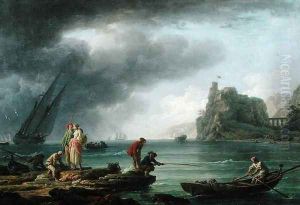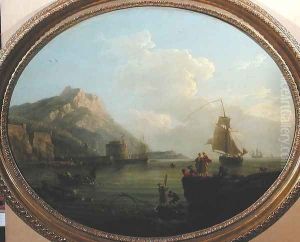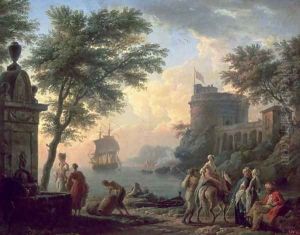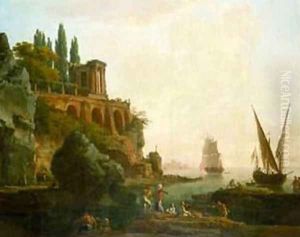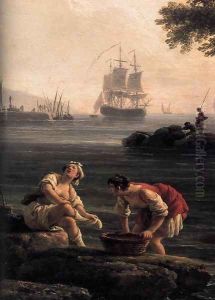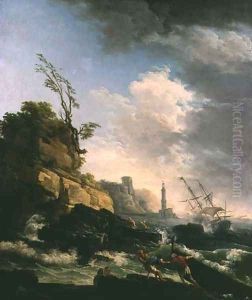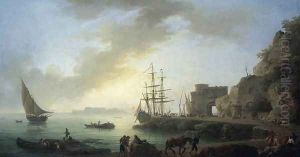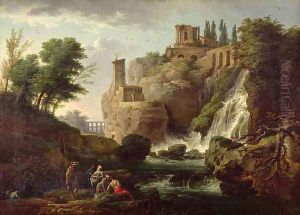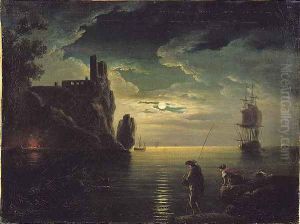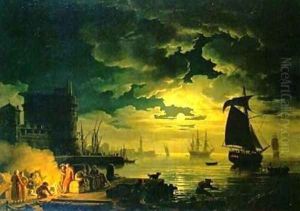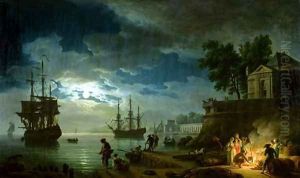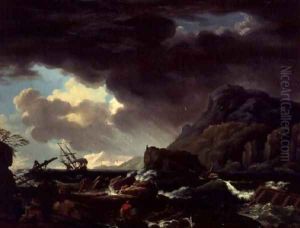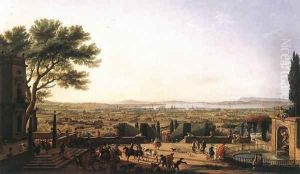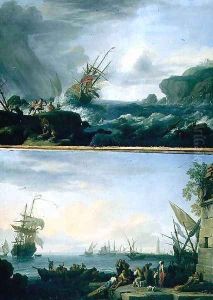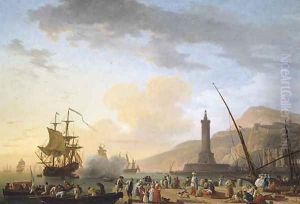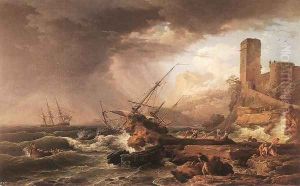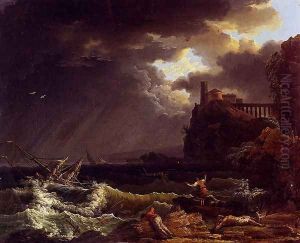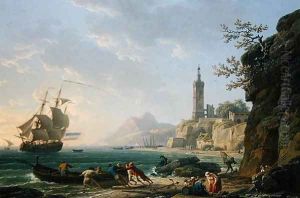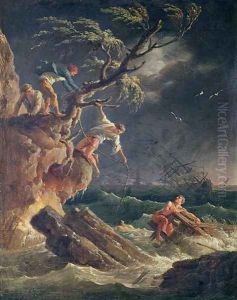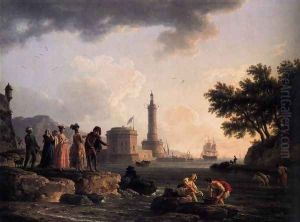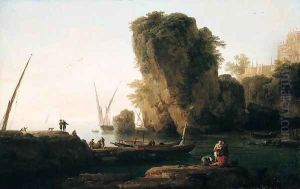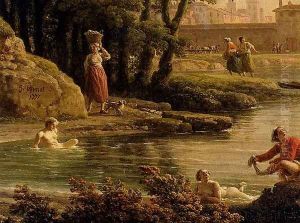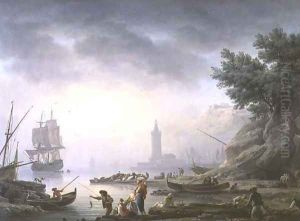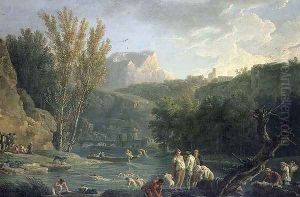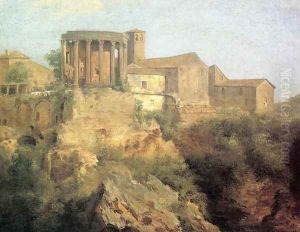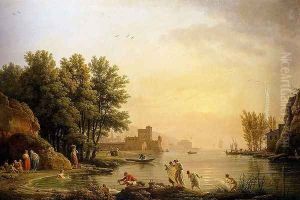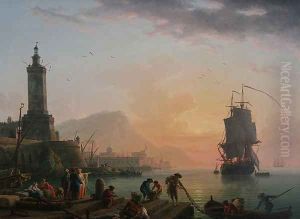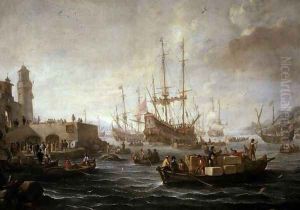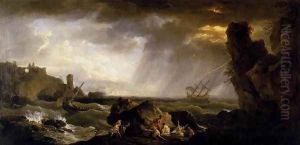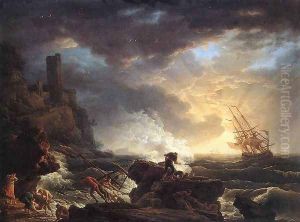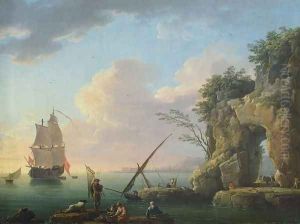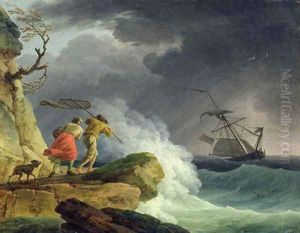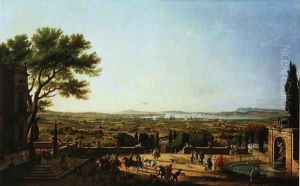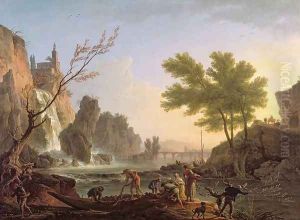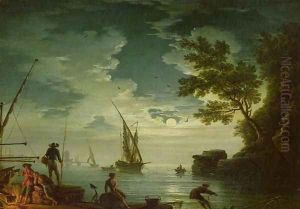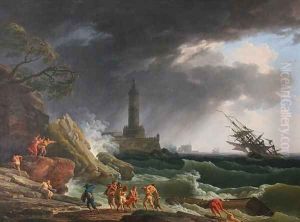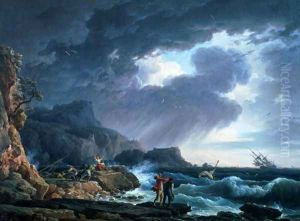Claude-joseph Vernet Paintings
Claude-Joseph Vernet was a French painter born on August 14, 1714, in Avignon, France. He is best known for his seascapes, or marines, which became highly sought after by collectors and patrons during the 18th century. Vernet was part of the Rococo movement, although his work also anticipated the more naturalistic styles of the later Romantic period.
Vernet displayed artistic talent at an early age and was sent to study in Aix-en-Provence with the painter Jacques Viali, who noticed his inclination for landscapes. He then moved to Rome in 1734 to study the works of classical artists and contemporary landscape painters. In Rome, his skills flourished, and he began producing seascapes inspired by the Mediterranean Sea and the Italian coastline, quickly establishing his reputation.
His work was characterized by a fascination with natural phenomena, like storms and shipwrecks, and he was adept at capturing the ever-changing moods of the sea and sky. Vernet's paintings also often included small human figures, which served to give a sense of scale and to add a narrative element to his seascapes.
In 1753, Vernet returned to France at the request of King Louis XV and was commissioned to paint a series of the ports of France, known as the 'Ports of France' series, which became one of his most famous works. These paintings were intended to glorify the kingdom of France and its naval power. Through this series, Vernet traveled the coast of France, and it took him a decade to complete the commission.
Despite his success with seascapes, Vernet was also an accomplished painter of landscapes, and he contributed to the development of the picturesque, an aesthetic ideal that influenced both art and garden design during the 18th century.
Vernet's popularity extended beyond France, and his works were collected throughout Europe. He became a member of the Royal Academy of Painting and Sculpture in Paris and later the director of the French Academy in Rome. His art was a significant influence on later generations of landscape and seascape artists.
Claude-Joseph Vernet died on December 3, 1789, in Paris, amid the early stages of the French Revolution. His legacy lived on through his son, Carle Vernet, who became a famous painter in his own right, and through the many artists he influenced during his lifetime.
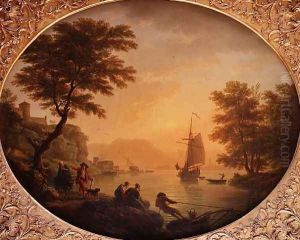
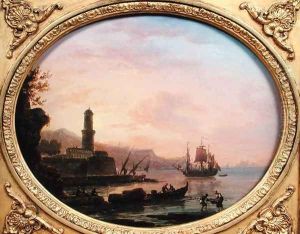
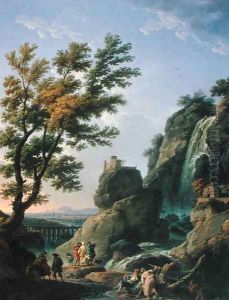
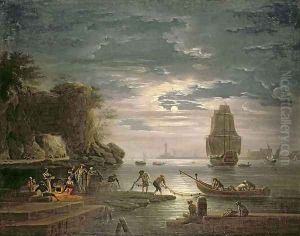
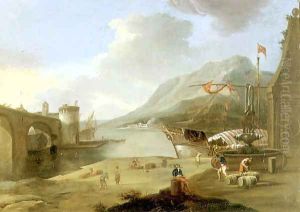
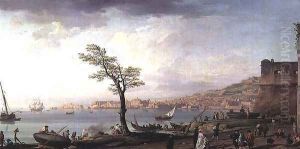
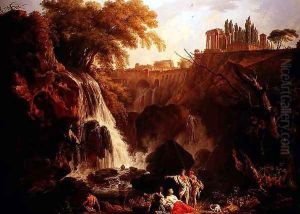
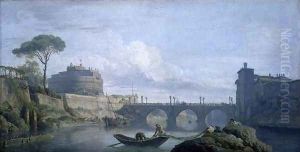
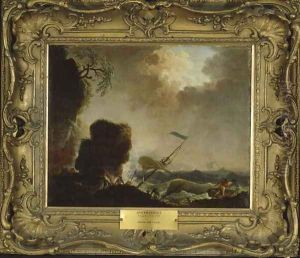
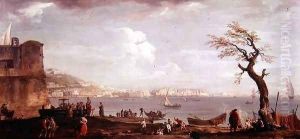
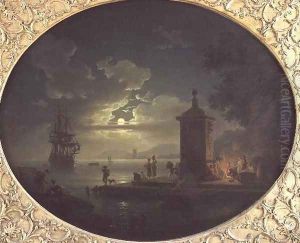
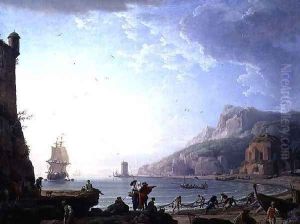
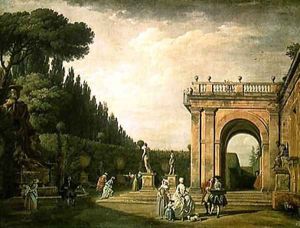
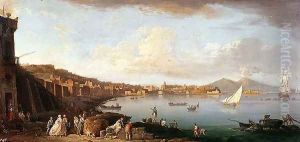
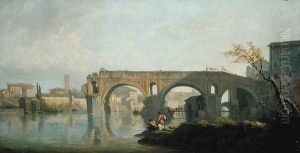
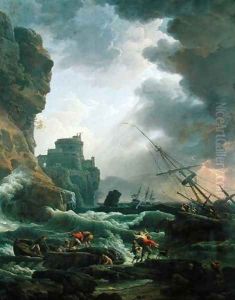
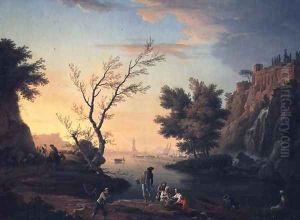
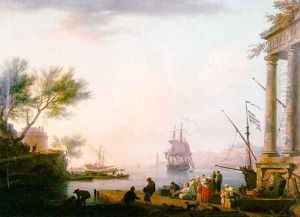
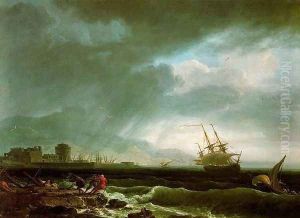
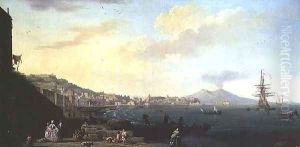
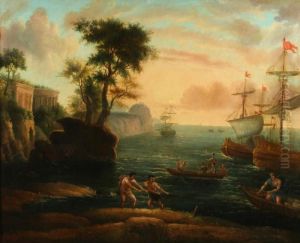
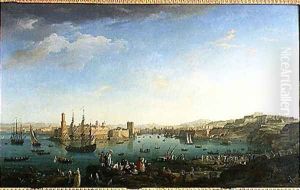
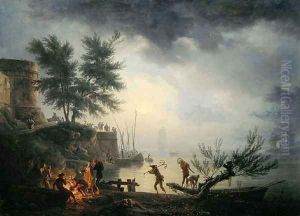
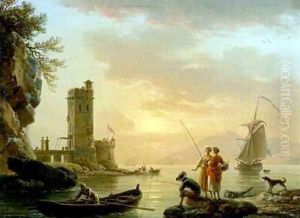
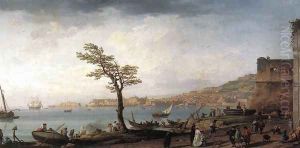
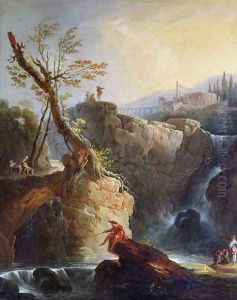
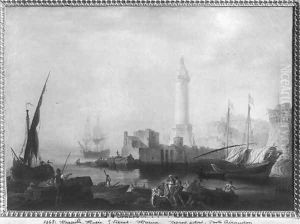
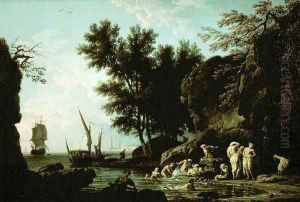
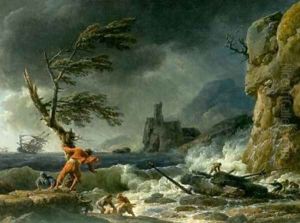
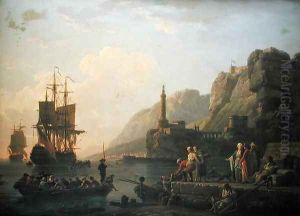
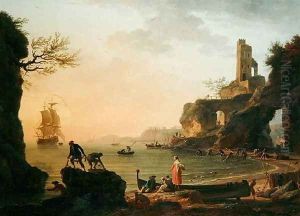
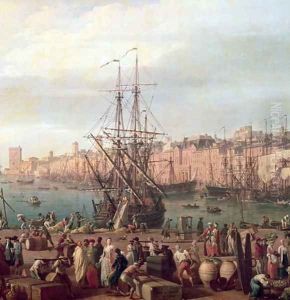
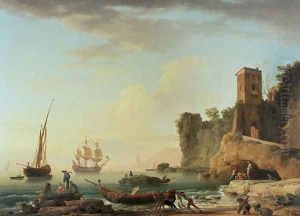
![Vue du golfe de Bandol: la pêche au thon [detail #1] (View of the Gulf of Bandol: Fishing for Tuna)](https://www.niceartgallery.com/imgs/299900/s/claudejoseph-vernet-vue-du-golfe-de-bandol-la-peche-au-thon-detail-1-view-of-the-gulf-of-bandol-fishing-for-tuna-ee374292.jpg)
